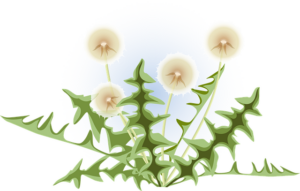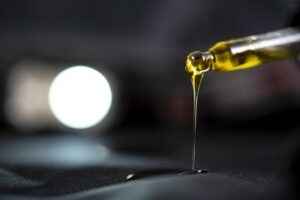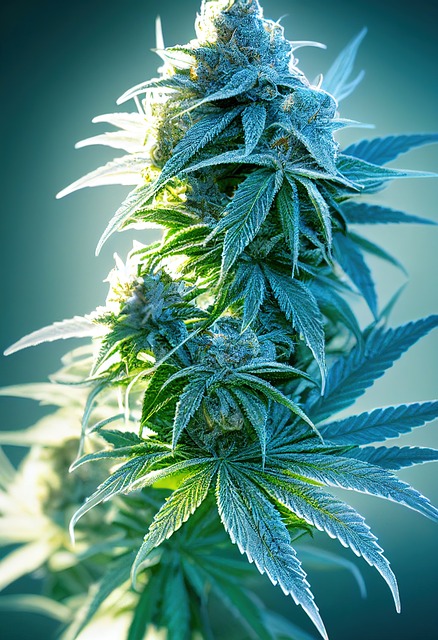
2023 has seen THCA (Tetrahydrocannabinolic Acid), a non-psychoactive compound found in hemp and cannabis, gain significant attention as a legal wellness option within the European Union due to its potential health benefits, including anti-inflammatory, neuroprotective, and analgesic effects. The EU's complex regulatory framework, which includes the 2017 directive on industrial hemp, allows for the cultivation of THCA-rich flowers in various EU countries, with the European Industrial Hemp Association overseeing compliance. THCA's legal status in these nations has opened up opportunities for sustainable agriculture that align with the EU's environmental standards and green deal initiative. Preclinical studies suggest that THCA may offer relief from nausea and vomiting, and its wellness properties are increasingly sought after by consumers. As a result, the cultivation of THCA flower is becoming an innovative and sustainable crop solution within the EU's agricultural sector, contributing to the region's commitment to addressing climate change.
Discover the transformative potential of THCA flower, a naturally occurring cannabinoid that’s gaining recognition across Europe for its health-promoting properties. As the interest in alternative wellness solutions grows, so does the availability and understanding of THCA legal status within EU countries. This article delves into the multifaceted benefits of THCA flower, exploring its role in the entourage effect and its sustainability as a choice for wellness. Join us as we navigate the legal landscape of THCA in the EU, understand how it can be incorporated into wellness routines, and appreciate the synergistic effects it offers when part of a holistic health approach.
- Unveiling THCA Flower: A Natural Powerhouse in EU Wellness
- The Rise of THCA Flower: Legality and Accessibility Across EU Countries
- THCA Legal Status: Navigating the EU’s Regulations on Cannabinoids
- THCA Flower Benefits for Health: An In-Depth Exploration
- The Entourage Effect: How THCA Flower Synergizes with Other Compounds
- Cultivation and Consumption of THCA Flower in the EU: A Sustainable Choice?
Unveiling THCA Flower: A Natural Powerhouse in EU Wellness
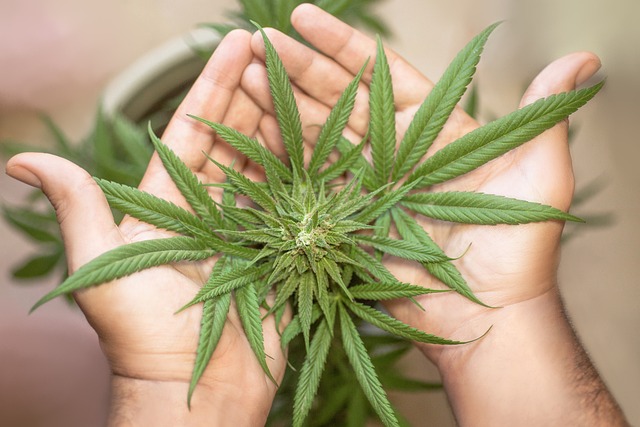
Unveiling THCA Flower as a natural powerhouse within the realm of wellness, this botanical compound has garnered attention across EU countries where its legal status allows for its exploration and utilization. Tetrahydrocannabinolic acid (THCA) is the raw, non-psychoactive precursor to the well-known THC found in hemp and cannabis plants. As such, it offers potential health benefits without the intoxicating effects associated with its psychoactive counterpart.
Research suggests that THCA exhibits a spectrum of therapeutic properties, including anti-inflammatory, neuroprotective, and analgesic effects, which are highly sought after for wellness applications. Its legality in various EU member states has facilitated scientific study and consumer access to THCA flower, a versatile ingredient that can be incorporated into a variety of products ranging from teas and tinctures to topicals and edibles. As awareness of THCA’s potential grows, so does the interest in its role within holistic health practices, making it a significant component in the wellness arsenal for many Europeans looking for natural ways to maintain health and vitality.
The Rise of THCA Flower: Legality and Accessibility Across EU Countries
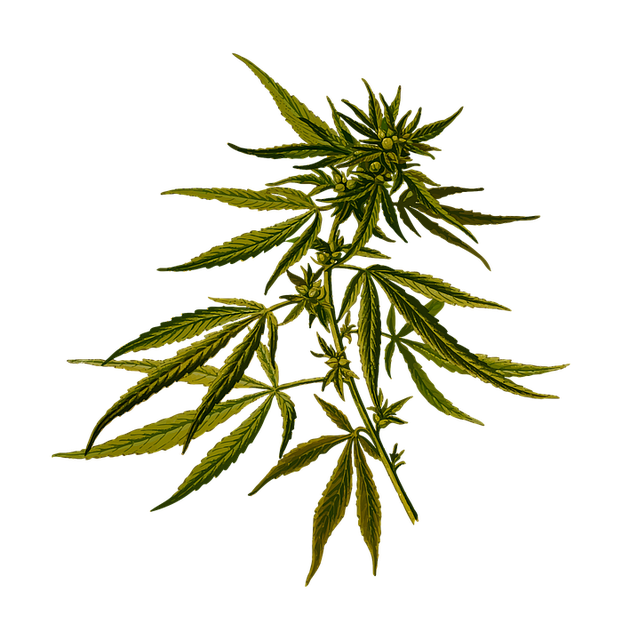
2023 has seen a significant shift in the landscape of cannabis-related products within the European Union, with THCA (Tetrahydrocannabinolic Acid) flower emerging as a topic of interest among consumers and regulators alike. The non-psychoactive precursor to THC (Tetrahydrocannabinol), THCA is gaining attention for its potential therapeutic benefits, prompting a reevaluation of cannabis policies across EU countries. As of the current year, the legal status of THCA flower varies across the member states, with some countries like Germany, Italy, and the Netherlands allowing its cultivation and sale under certain conditions. The EU’s regulatory framework, which is complex and often interpreted differently at the national level, influences the accessibility of THCA flower. Factors such as the European Industrial Hemp Association’s guidelines and each country’s implementation of the 2017 EU directive on cannabis play pivotal roles in determining the legality and market availability of THCA products. Consumers within the EU are increasingly seeking out THCA legal options, leading to a growing market for these hemp-derived compounds. The evolving legal landscape is a testament to the shifting perspectives on cannabis derivatives and their potential contributions to health and wellness, marking a new chapter in the region’s approach to cannabinoids. As legal frameworks continue to adapt, the availability of THCA flower is expected to expand, offering consumers more options while navigating the nuanced regulations within each EU country.
THCA Legal Status: Navigating the EU’s Regulations on Cannabinoids

delta-9-tetrahydrocannabinolic acid (THCA) is a non-psychoactive cannabinoid found in raw cannabis plants, which becomes psychoactive THC when heated. As of recent updates within the European Union’s regulations, the legal status of THCA has become a subject of interest and complexity. The EU’s legislative framework categorizes cannabinoids derived from Cannabis sativa under narcotics legislation, classifying them as controlled substances. However, there are nuances in how member states apply these regulations.
In the EU, the legal landscape concerning THCA is dynamic and varies by country. Some EU countries have specific provisions that differentiate between raw cannabis containing THCA and its psychoactive counterpart, THC. For instance, in certain jurisdictions within the EU, THCA-rich products can be legally sold and consumed as long as they are not heated or processed in a way that converts THCA into THC. This distinction is crucial for businesses and consumers operating within the legal boundaries set by each country’s interpretation of the EU’s regulations. It is imperative for stakeholders to stay informed about the evolving regulations, as national laws may interpret the EU’s guidelines differently, leading to a patchwork of legality across EU countries. Understanding the specific legal status of THCA in each member state is essential for compliance and safe operation within this rapidly changing market.
THCA Flower Benefits for Health: An In-Depth Exploration

Delta-9-tetrahydrocannabinol acid (THCA) is a non-psychoactive cannabinoid found in the flowers of the Cannabis sativa plant. Its potential health benefits have garnered attention within the scientific and wellness communities, particularly in discussions around THCA legal status in EU countries where regulations vary by jurisdiction. THCA flower, rich in this cannabinoid precursor to the more famous psychoactive compound Delta-9-THC, is being studied for its therapeutic properties, which may include anti-inflammatory, neuroprotective, and analgesic effects. Preclinical research suggests that THCA may offer beneficial modulations in the body’s endocannabinoid system, influencing pain sensation, gut health, and immune response without the psychoactive side effects of its decarboxylated counterpart.
In EU countries where hemp-derived products are legal under certain conditions set forth by the European Industrial Hemp Association (EIHA), THCA flowers are increasingly available for health-conscious consumers. The legality hinges on the THC content, with most EU nations allowing products with a maximum of 0.2% THC on a dry weight basis. THCA is often highlighted for its potential to support the body’s natural balance without impairment, making it a valuable addition to wellness routines in compliance with local regulations. Its anti-emetic properties are particularly noteworthy, with studies indicating that THCA may be effective in reducing nausea and vomiting, which could be beneficial for individuals undergoing chemotherapy or those with related conditions. As such, the exploration of THCA flower benefits for health is an area of growing interest, with ongoing research expected to shed more light on its full potential.
The Entourage Effect: How THCA Flower Synergizes with Other Compounds
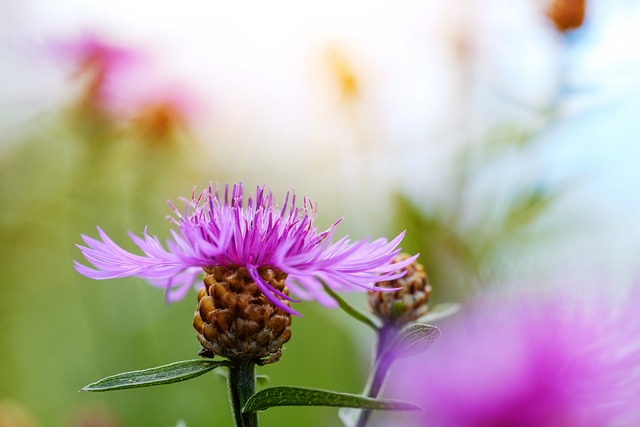
The exploration of THCA (Tetrahydrocannabinolic Acid), a non-psychoactive cannabinoid found in raw cannabis flowers, has gained significant attention due to its potential therapeutic benefits. When heated, THCA converts into THC (Tetrahydrocannabinol), the primary psychoactive component of cannabis. However, in its natural state, THCA is legal across various EU countries and offers a broad spectrum of wellness properties. A pivotal aspect of cannabis’s efficacy is the Entourage Effect, a phenomenon where cannabinoids, terpenes, and flavonoids within the plant interact synergistically to enhance each other’s effects. This synergy is crucial as it can influence the body’s endocannabinoid system more holistically than any single compound alone. For instance, THCA’s potential anti-inflammatory and neuroprotective properties may be amplified when consumed with other cannabis compounds like CBD (Cannabidiol), CBN (Cannabinol), and terpenes such as myrcene, limonene, and caryophyllene. These components work in concert to modulate various physiological processes, offering a more balanced and comprehensive effect than THCA alone could provide. As a result, the use of THCA-rich flowers is becoming increasingly popular among consumers who seek the benefits of cannabis without the psychoactive effects associated with THC, especially within EU countries where THCA is legal and accessible. Understanding and leveraging the Entourage Effect can significantly enhance the potential therapeutic applications of cannabis and its derivatives, making it a subject of growing interest in both scientific research and consumer markets.
Cultivation and Consumption of THCA Flower in the EU: A Sustainable Choice?
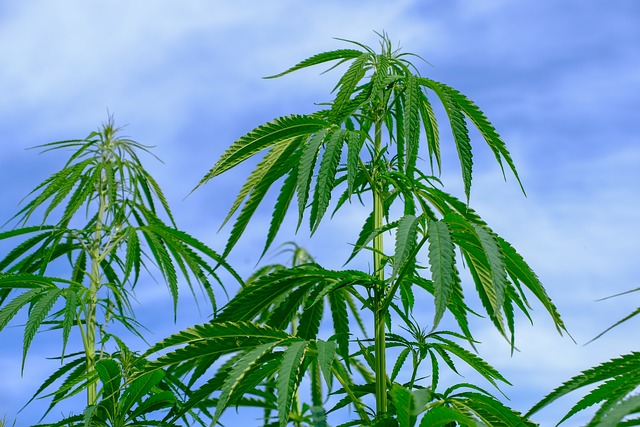
The cultivation and consumption of THCA (Tetrahydrocannabinolic Acid) flower, a non-psychoactive compound found in hemp and cannabis plants, have garnered attention within EU countries due to its potential health benefits and its status as a legal alternative to THC (Tetrahydrocannabinol). THCA is the precursor to THC and has similar but distinct effects on the body. The cultivation of THCA-rich flowers is regulated under the European Industrial Hemp Association guidelines, ensuring sustainable practices that are in harmony with the EU’s environmental standards. EU countries have been proactive in legalizing hemp-derived products containing less than 0.2% THC, opening up opportunities for the cultivation of THCA flower under the Novel Food regulation. This has led to a burgeoning market for THCA products, with consumers seeking out this cannabinoid for its potential wellness properties without the psychoactive effects associated with THC. The sustainable choice aspect comes into play as THCA flower cultivation can be integrated into rotational farming systems, enhancing soil health and biodiversity, which aligns with the EU’s green deal initiative aimed at promoting sustainable agriculture and food systems. As such, the emergence of THCA flower in the EU market not only presents a new frontier for consumers but also supports environmentally friendly agricultural practices that are becoming increasingly important in the global effort to combat climate change.
THCA flower has emerged as a significant wellness component within the EU, offering a range of potential health benefits backed by scientific research. As the legality and accessibility of THCA flower continue to evolve across different EU countries, understanding its status under EU regulations remains crucial for consumers and producers alike. The entourage effect, highlighting how THCA interacts with other cannabinoids and compounds in cannabis, further underscores its therapeutic potential. As the EU grapples with the implications of its growing presence, it’s clear that THCA flower holds promise as a sustainable and beneficial addition to wellness routines across the continent, provided it adheres to stringent legal frameworks.
